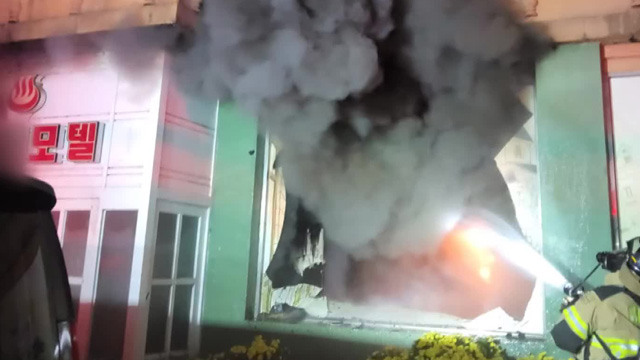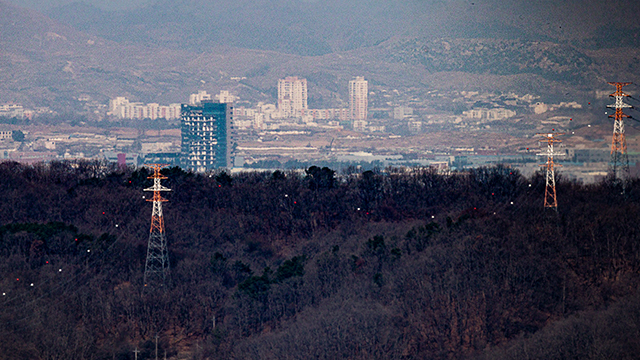[News Today] HOSPITALS PUNISHED FOR ER REFUSAL
입력 2024.11.25 (16:24)
수정 2024.11.25 (16:25)
읽어주기 기능은 크롬기반의
브라우저에서만 사용하실 수 있습니다.
[LEAD]
Last year in Daegu, a teenager died after being shuttled around in an ambulance for two hours. At that time, the Ministry of Health and Welfare imposed subsidy cuts on the involved hospitals for "refusal of emergency medical care." One hospital responded with a lawsuit, arguing they only reported the absence of medical staff, not a denial of care. What decision did the court make? We take a look.
[REPORT]
In March, last year, the emergency response service received a call that a teenage girl had fallen from a building and sent paramedics to the scene immediately.
The first place the emergency workers called was the Daegu Catholic University Medical Center, but the hospital refused to take the patient.
The reason was that there were no neurosurgeons available.
The girl was bounced around several hospitals for over two hours before dying in the ambulance.
This case prompted the health ministry to investigate the matter for around a month before handing down administrative measures, including subsidy cuts, on the Daegu Catholic University Medical Center and three other hospitals.
Health ministry official/ (Apr. 2023)
They first requested trauma treatment, so the hospital should have checked everything related to the treatment.
However, the hospital filed a lawsuit, claiming that cutting off the subsidy for six months is excessive.
The hospital argued it didn't refuse emergency care, saying they had informed the patient that all neurosurgeons were unavailable at the time and recommended another hospital.
But the court ruled in favor of the ministry and its measure to cut subsidies.
The Seoul Administrative Court also sided with the ministry, saying the hospital's action was clearly a refusal and evasion of emergency medical services.
The ruling emphasized that the hospital should have at least conducted a basic examination to determine whether the person was an emergency patient.
With prolonged medical service gaps and the patients still being rejected at ERs, the ruling's impact on the healthcare system is drawing attention.
■ 제보하기
▷ 카카오톡 : 'KBS제보' 검색, 채널 추가
▷ 전화 : 02-781-1234, 4444
▷ 이메일 : kbs1234@kbs.co.kr
▷ 유튜브, 네이버, 카카오에서도 KBS뉴스를 구독해주세요!
- [News Today] HOSPITALS PUNISHED FOR ER REFUSAL
-
- 입력 2024-11-25 16:24:14
- 수정2024-11-25 16:25:50
[LEAD]
Last year in Daegu, a teenager died after being shuttled around in an ambulance for two hours. At that time, the Ministry of Health and Welfare imposed subsidy cuts on the involved hospitals for "refusal of emergency medical care." One hospital responded with a lawsuit, arguing they only reported the absence of medical staff, not a denial of care. What decision did the court make? We take a look.
[REPORT]
In March, last year, the emergency response service received a call that a teenage girl had fallen from a building and sent paramedics to the scene immediately.
The first place the emergency workers called was the Daegu Catholic University Medical Center, but the hospital refused to take the patient.
The reason was that there were no neurosurgeons available.
The girl was bounced around several hospitals for over two hours before dying in the ambulance.
This case prompted the health ministry to investigate the matter for around a month before handing down administrative measures, including subsidy cuts, on the Daegu Catholic University Medical Center and three other hospitals.
Health ministry official/ (Apr. 2023)
They first requested trauma treatment, so the hospital should have checked everything related to the treatment.
However, the hospital filed a lawsuit, claiming that cutting off the subsidy for six months is excessive.
The hospital argued it didn't refuse emergency care, saying they had informed the patient that all neurosurgeons were unavailable at the time and recommended another hospital.
But the court ruled in favor of the ministry and its measure to cut subsidies.
The Seoul Administrative Court also sided with the ministry, saying the hospital's action was clearly a refusal and evasion of emergency medical services.
The ruling emphasized that the hospital should have at least conducted a basic examination to determine whether the person was an emergency patient.
With prolonged medical service gaps and the patients still being rejected at ERs, the ruling's impact on the healthcare system is drawing attention.
이 기사가 좋으셨다면
-
좋아요
0
-
응원해요
0
-
후속 원해요
0















이 기사에 대한 의견을 남겨주세요.